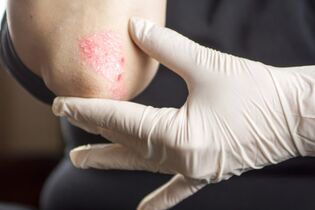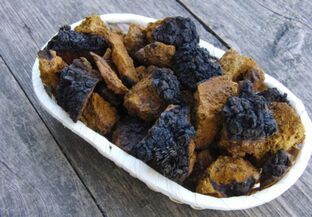Medication alone is not enough to treat psoriasis in different parts of the body. The greatest result will be given only with an integrated approach. Therefore, you need to know all the possible ways to treat a dermatological disease.
Basics of psoriasis treatment
Before you start fighting psoriasis, you should think that it is incurable. Therapy focuses on the ability to fight symptoms, restore the body's protective functions, and establish a stable clinical remission.

The principles of treatment consist of several areas:
- drug treatment;
- physiotherapy (used in combination with other forms of treatment);
- non-traditional alternative treatment;
- traditional medicine.
When treating psoriasis, it is very important to take into account the individual characteristics of each organism. What works for one patient doesn't always work for another. Every patient diagnosed with psoriasis requires serious thoughtful treatment and special attention.
Medication for psoriasis
External opportunities
Topical drugs are used to relieve inflammation, itching, swelling and other symptoms of psoriasis. These include:
- ointments;
- cream;
- lotions;
- sprays;
- gels.
Such drugs should be used for mild and moderate forms of the disease. In severe forms, in most cases, such drugs are used in combination with other strong drugs. In this case, the doctor must determine the severity of the disease, taking into account the individual intolerance to a particular drug. External drugs can be used in patients of all ages.
Ointments and creams, both hormonal and non-hormonal, are widely used in medical practice. It is better to use non-hormonal substances as there are no side effects. However, in some cases, such drugs can not defeat the disease. Then hormonal drugs should be used, which perform the following actions:
- is used purposefully, acting only on lesions;
- ointments stop the development and spread of lesions;
- penetrates into the deeper layers of the epidermis;
- eliminate itching, swelling;
- Eliminates the symptoms of allergic reactions.
Glucocorticosteroid drugs with the following properties are also used for treatment:
- eliminate the inflammatory process;
- eliminate itching and swelling;
- slows down the process of cell division.
Steroids can have both strong and moderate effects. In severe forms of psoriasis are prescribed drugs that have a strong effect, in mild stages - milder drugs. Topical corticosteroid treatments include:
- Hydrocortisone acetate. The ointment is applied to the skin surface in a thin layer. The course of treatment is 6 to 14 days. If this is not enough, the course is extended to three weeks.
- Fluosinolone acetonide. Used in all stages of psoriasis. With mild to moderate severity of the disease, it is used as the main tool, in severe form - as an adjuvant.
- Prednisolone Ointment. The course of treatment is 2 weeks. On a smooth layer, apply the dressing only to inflamed areas, which is not recommended.
Despite the effectiveness of treatment with hormonal drugs, unfortunately, their use can cause side effects. Not only do they have a strong effect on the epidermis, which loses color and thins, but there is a risk of recurrence of the disease when used. When treated with hormones, there is an addiction to the drug, as a result of which other means can not help. Due to the duration of steroid use, muscle weakness, blood pressure and weight loss and loss of appetite appear. Steroid drugs are sold in over-the-counter pharmacies and long-term use is not recommended.
The pharmaceutical industry produces a perfect range of hormone-free psoriasis treatments to combat symptoms without harming your body.
All non-hormonal drugs are divided into several groups:
Indifferent ointments (do not contain active ingredients).
Salicylic ointment. It has anti-inflammatory and antimicrobial effects, softens the skin, accelerates the process of exfoliation of the stratum corneum. The ointment contains salicylic acid, which quickly cleanses the affected areas. The ointment should be applied in the direction of the spot, as allergies may occur.
Zinc Ointment. Antiseptic has a drying and protective effect, is able to eliminate inflammation. Contains zinc oxideIt is undesirable to use the ointment for more than 30 days, as it can be addictive.
Zinc pirition. The drug is based on zinc pyrithione, which fights the inflammatory process well and has antimicrobial and antifungal effects.
- Resin ointments. Preparations include pine and maple resin. These include anthrasulfonic, anthramine ointments and colloidin, which are able to eliminate inflammation, repair damaged skin and have a disinfectant effect. Sweaty ointments should be started in small doses. If allergic reactions do not occur, the dose may be increased.
- Ointments containing oil. These ointments are considered the most effective among non-hormonal substances.
- Ointments containing vitamins. Retinol palmitate. Ointment with vitamin A has a therapeutic effect, restores and normalizes metabolic processes in tissues. Calcipotriol with vitamin D has an inhibitory effect on stratified epithelial cells (keratinocytes). Cannot be combined with salicylic acid ointments.
- Products with fat. Naphthalene ointment. The ointment contains naphthalene oil - a substance that has a very unpleasant odor, but unique action. Promotes rapid skin regeneration, has antimicrobial, antipruritic and absorbent effects
Oral medications
One of the ways to relieve the symptoms of the disease is to use drugs in tablet form. These are tablets that can provide the body with the necessary components. Pill treatment is more effective than local medicines. Tablets can be prescribed only by a doctor, taking into account the age and physiological characteristics of the patient. Psoriasis medication is divided into two groups:
- hormonal - the most effective tool, the use of which allows you to achieve positive results in a short time, but can cause many side effects;
- non-hormonal - complements the effect of the main drug.
The onset of psoriasis is due to internal causes that are responsible for disrupting metabolic processes in the body.
Therefore, you should resort to stronger drugs:
- methotrexate. Tablets that can significantly slow down the process of cell division. It is used for pustular and erythrodermic psoriasis. It is widely used in the treatment of psoriatic arthritis. However, this has many side effects.
- Meglumine sodium succinate. A new generation of drugs with a broad spectrum of action. It is used for severe psoriasis and is given only by prescription.
Alternative treatment
Alternatively, drug-free methods and approaches are used. Recommended:
- visit thermal springs;
- Garra Rufa fish peeling course (iciotherapy);
- goes through healing mud sessions;
- freshwater hydrotherapy;
- plasmapheresis;
- massage course.
However, these methods are effective only in combination with traditional treatment methods.
Physiotherapy for psoriasis
Physiotherapy is an important part of psoriasis treatment. Physiotherapy can not be used in the early stages of the disease. These methods are used when the symptoms of the disease decrease and are performed in the hospital.
Physical exposure methods include:
- UV radiation;
- puva therapy;
- ultrasound application;
- laser treatment;
- laser chemotherapy;
- magnetotherapy (application of static magnetic field);
- cold (cryotherapy);
- electric sleep;
- X-ray therapy.
Diet therapy for psoriasis
Diet plays an important role in the treatment of psoriasis. Therefore, it is necessary to know what food should make up the patient's diet. Proper nutrition restores intestinal function, helps relieve painful symptoms, strengthens the immune system and protects the body from new recurrences.

List of products that adversely affect the condition of the skin and hair:
- Smoked and salty foods. The components in the products affect the functioning of the digestive tract, can adversely affect the condition of the epidermis.
- Citrus fruits. Large amounts of essential oil are found in the colored peel (flavor) of fruits, so industrially prepared juices have a negative effect on the patient's condition.
- Nuts. It is a strong allergen.
- Fatty foods.
- Alcoholic beverages. They disrupt the function of the liver, which is unable to cleanse the blood of toxins that adversely affect the condition of the dermis.
- Chocolate and cocoa products are strong allergens.
- Products with high dyes.
Diet for psoriasis should include:
- vegetables and fruits;
- cereals;
- dairy products;
- fish;
- chicken;
- greens.
Psoriasis requires drinking plenty of fluids. You need to drink up to two liters a day.
Traditional medicine recipes for psoriasis
Effective treatment of psoriasis is possible with traditional medicine. These can be home products for indoor use:
- drug sources and infusions;
- tablets and powders;
- consists of many components.
Flaxseed infusion. Helps cleanse the body of toxins, slows the progression of the disease. Pour 20 g of seeds into a thermos, pour boiling water (250 ml). Drink activated charcoal (2 tablets) before bedtime. For a tincture on an empty stomach in the morning, eat seeds.
bay leaf decoction. It is effective at the first signs of psoriasis. Pour boiling water over the chopped bay leaves. Leave to cool and strain.
Chaga maple mushroom. The active ingredients in the baby restore the condition of the epidermis. During the night, pour the mushrooms (100 g) with warm water (1 l). In the morning, make a mushroom-like mixture with the density of the mushrooms in a blender. Bring the broth to 40 degrees and pour over the chopped mushrooms. Insist for three days.

Used for external use:
- homemade ointments;
- shampoos;
- collection of medicinal plants.
For more effective treatment, herbal ointments should be applied to the affected areas of the body.
Propolis ointment. Grind 20 g of propolis and add 350 g of butter. Heat in a water bath. Tension. Apply to localized areas of boards. Store in the refrigerator.
Birch buds ointment. Grind birch buds (100 g). Mix with resin (180 g) and ash (50 g). Stir until smooth. Rub on the affected area, wrap with cling film.
Home therapeutic baths are also useful for psoriasis. Mix the wire and celandine (100 g each) and pour three liters of water. Dissolve sea salt. Let it brew for an hour. Pour hot water into the bath water.
For the healing procedure, you can apply blue clay in combination with sea salt. After taking such a bath, the skin becomes very soft.
Effective remedies
Treatment of psoriasis on the elbows should be carried out in the form of a complex that includes:
- to take vitamins;
- diet;
- external treatment;
- physiotherapy;
- phototherapy.
Local medicines (ointments, creams) are used to treat a disease of the knees. Perhaps the appointment of sedatives and antihistamines for complex treatment. Anti-inflammatory drugs are prescribed with excessive bleeding.
Treatment of psoriasis on the palms and soles of the feet is very problematic. This is primarily due to the constant irritation of these parts as a result of rubbing and frequent washing of clothes. If treatment with foreign agents does not give a positive result, ultraviolet radiation is prescribed.

Treatment of psoriasis in remission
After the onset of remission, all recommendations should be followed to maintain this condition and prevent recurrence of the disease. To prevent psoriasis from feeling bad for a long time, you need to keep this in mind:
- You can't stop the treatment, but continue to take the prescribed medication.
- Do not use new medications other than those prescribed.
- Symptoms of infectious diseases should be eliminated in a timely manner.
- Try not to damage the skin during remission.
- Avoid nervous breakdowns.
- Don't overuse sunscreen.
- Avoid contact with chemicals.
- Try to use only natural materials.
- Take care of your skin.
During this period, it is necessary to apply all the recommended methods and tools to prevent further development of the disease.























